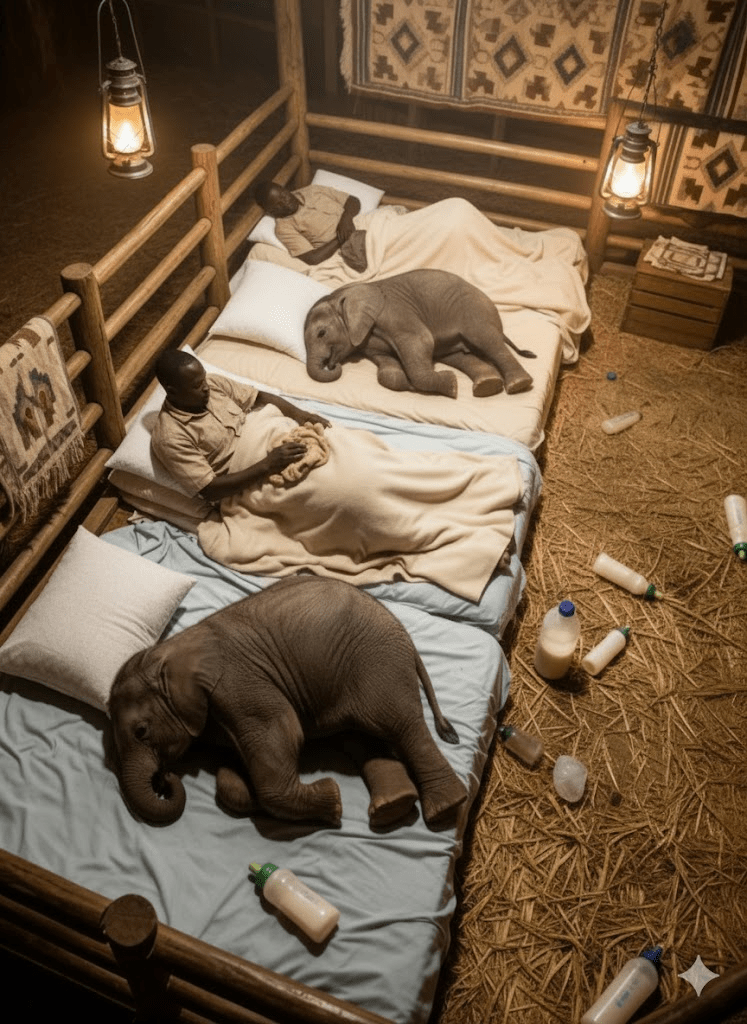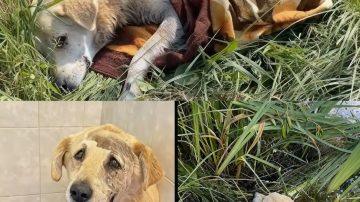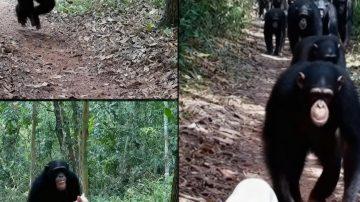The image before us tells a powerful and deeply moving story without a single word. It captures a scene of profound dedication and compassion: two baby elephants, nestled comfortably on beds, each accompanied by a human keeper sleeping by their side. The soft glow of lanterns casts a warm, intimate light over the scene, illuminating a rustic stable adorned with patterned tapestries and straw-covered ground, scattered with empty milk bottles – a testament to recent feedings. This isn’t just a job; it’s a calling, a round-the-clock commitment to nurturing vulnerable lives. These aren’t just animals; they are orphaned calves, fragile and reliant, who have found a second family in these devoted individuals. The image evokes a sense of peace, security, and unwavering care, highlighting the extraordinary bond forged between humans and these magnificent creatures, especially when those creatures are at their most vulnerable. It’s a vivid snapshot of the selfless effort involved in wildlife conservation, reminding us of the profound impact human empathy can have on the survival and well-being of endangered species.
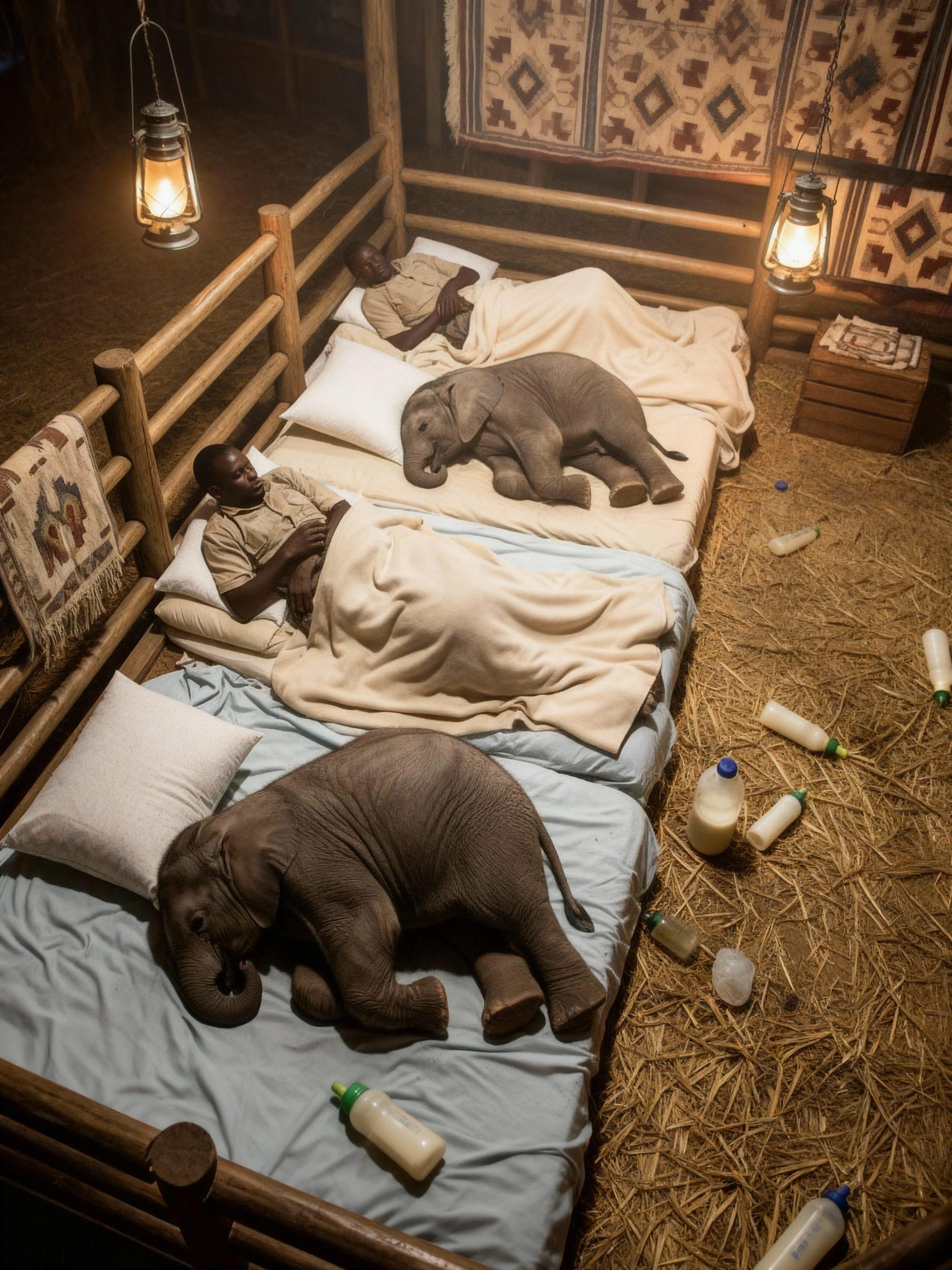
Elephant calves are incredibly dependent on their mothers for the first several years of their lives, not just for nourishment, but also for social learning, protection, and emotional support. When a calf loses its mother, whether due to poaching, natural disaster, human-wildlife conflict, or disease, it faces an almost insurmountable challenge to survival. These orphaned elephants often arrive at sanctuaries traumatized, malnourished, and deeply distressed. The immediate aftermath of such a loss is critical; without intervention, these young elephants would quickly succumb to starvation, predation, or the emotional toll of isolation. This is where the unsung heroes, the elephant keepers, step in. They become surrogate parents, providing the constant care, comfort, and security that a mother elephant would naturally offer. Their role extends far beyond feeding and cleaning; it encompasses emotional healing and the painstaking process of rebuilding trust.

The routine for these keepers is relentless, mirroring the 24/7 demands of caring for a human infant. As depicted, nights are spent sleeping alongside the calves, providing continuous warmth, comfort, and immediate attention. Baby elephants, much like human babies, require frequent feedings, often every few hours around the clock. Their specialized milk formula must be prepared precisely and administered with patience, often from large bottles that mimic a mother’s teat. Beyond feeding, keepers are responsible for monitoring the calves’ health, checking for any signs of illness, injury, or distress. They observe their breathing, digestion, and general demeanor, becoming intimately familiar with each calf’s unique personality and needs. This level of constant vigilance is crucial, as young elephants can be susceptible to various ailments.
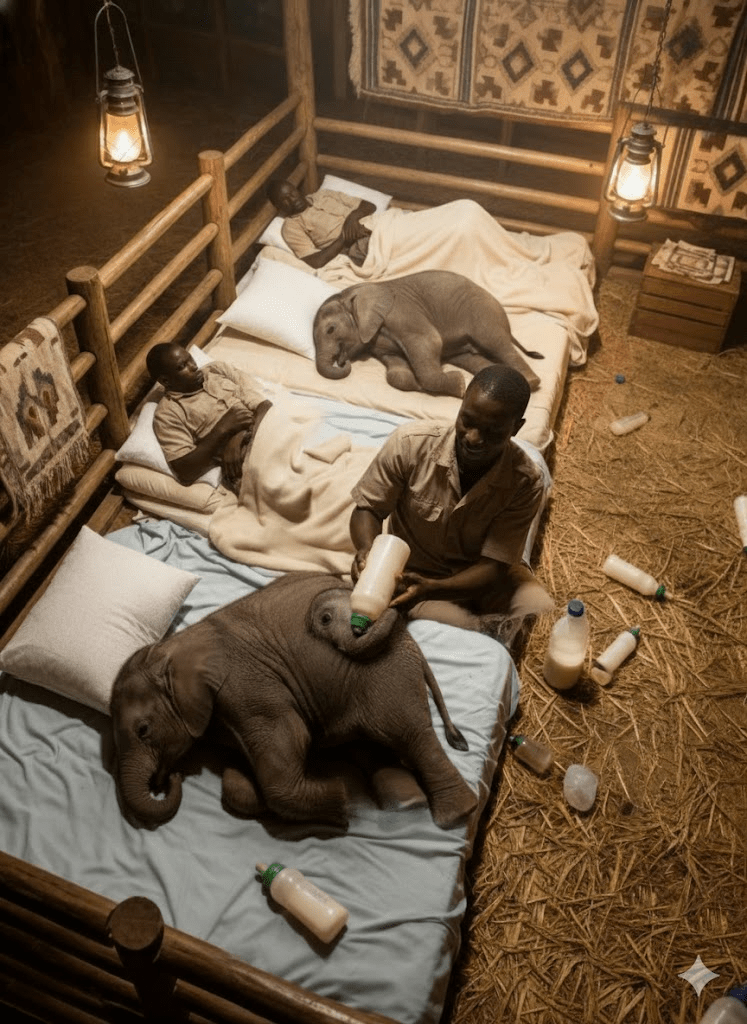
A vital aspect of their care is providing the physical contact and emotional reassurance that a mother would naturally provide. Elephant calves are highly tactile and find comfort in touch. Keepers often spend hours stroking, cuddling, and even sleeping curled up with the calves, offering a sense of security that is essential for their emotional recovery. This physical presence helps to mitigate the trauma of their loss and fosters a profound bond of trust between the calf and its human caregiver. The sound of a human heartbeat, the warmth of a blanket, and the gentle touch all contribute to creating a safe and nurturing environment, allowing these vulnerable creatures to begin to heal from their past experiences.
